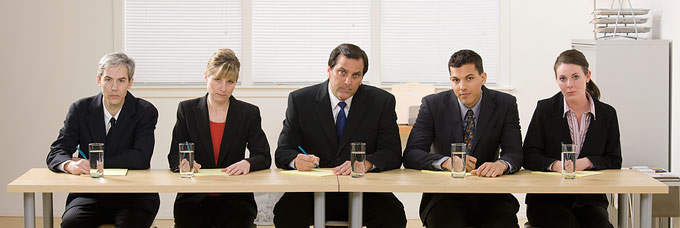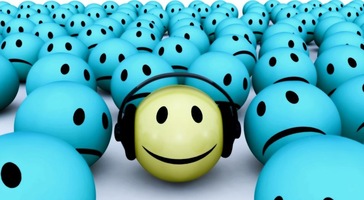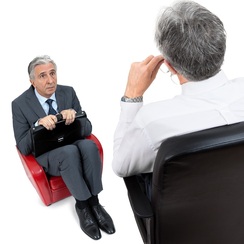Career transition is often a lengthy and grueling process during which our confidence is tested many times when things don't go as smoothly as we imagined. Many of my coaching clients struggle with maintaining positivity and confidence after they encountered a harsh interviewer or received rejections from job applications. Intellectually, many people understand that mentality has a large effect on how we show up and perform in interviews. The question then becomes, how do you psych yourself up when the world seems to be against you.
One inspiration for me in this area is Harvard Professor Amy Cuddy's 17million-views TED talk, "Your body language shapes who you are" (see video link at the bottom of the post). Amy's research indicates that our body posture affects our testosterone (dominant hormone) and cortisol (stress hormone) levels, both of which influence how confident and powerful we feel. Therefore, by adapting a "power posture", one can physically and psychologically "trick" your body and mind to be more dominant, high-power and confident.
Amy Cuddy's research inspired me to look into other somatic and psychological methods to help job seekers maintain confidence and positive attitude. Below are some exercises that I often find helpful both personally and in my clients.
Throughout the career transition period
Throughout the career transition period
- Focus on the positive 20%: For each interview, especially the ones that you considered "failures", look for the 20% that worked. You may think that you completely bombed the interview, but I am sure there are many things that you did well. Here are some examples: "I built a good rapport with the interviewer"; "I was able to land an interview without much direct experiences"; "I told a great story about my past experience"; "I was on time", etc. Write these discoveries down in a list, continue to add to the list as your career transition progresses. Put the list somewhere visible and continue doing these positive behaviors. This idea came from Tom Chi's talk during Hive Global Leaders Program. The basic principal here is to focus on the positives of a "failure experience". While learning from what didn't work can help us not make the same mistakes the next time, it also makes us feel regretful and sad about the past experience. Therefore, in addition to learning from the mistakes, I encourage my clients to spend some efforts focusing on the 20% that worked. Doing this can help us stay more positive and confident as we inevitably encounter obstacles during our career transition.
- Positive experience meditation: Recall a past experience during which you performed very well and succeed at a certain difficult task. Each day, spend 5 minute meditate on that experience. With your eyes closed, try to recall as much details about this positive experience in your mind. Recall the exact place, the atmosphere, the people, the action you took, the words you and others were saying. Notice how your body feels during this meditation. This exercise can help you and your body remember what it feels like to be powerful and confident.
Right before an interview
- Practice a power pose for 2 minutes: This idea came directly from Amy Cuddy's research. Before an interview, you can go to a private place (bathroom stall is usually a good option) and hold a power pose (see Amy's TED talk on what are power poses) for 2 minutes continuously. You may feel silly doing this, but if scientific research shows that it increases confidence and lowers stress hormone, why shouldn't we give it a try? :)
- Positive experience meditation for 2 minutes: This is basically doing the daily positive experience meditation, but right before the interview. Instead of nervously memorizing your answers before the interview, which only increases stress, try this meditation/imaging technique to put your mindset in a positive and confident place.
During an interview
- Sit straight, take up a reasonable amount of space with your body and be aware of your body position: Obviously we cannot lean back and put our feet on the table during an interview. However, I have noticed in myself that sitting up straight, with my arms supported on the table or chair, and taking up a reasonable amount of space physically with my body, increases my presence in the room and makes me feel that I am more in control. I encourage you to be more aware of your body posture/body language during an interview so that you can develop what works best for you.
Body language can be very telling in interviews
Hope you find some of these exercises helpful in your career transition journey. Enjoy the TED video!







